Today’s readings
During World War II, the officers of the Third Reich’s secret service forcefully recruited many 12- and 13-year-old boys into the Junior Gestapo. The harshly treated boys were given only inhumane jobs that they were to perform without rest or complaint. After the war ended, most had lost contact with their families and wandered aimlessly, without food or shelter. As part of an aid program to rebuild postwar Germany, many of these youths were housed in tent cities. There, doctors and nurses worked with them in an attempt to restore their physical, mental and emotional health.
Many of the boys would awaken several times during the night screaming in terror. But one doctor had an idea for handling their fears. After serving the boys a hearty meal, he’d tuck them into bed with a piece of bread in their hands that they were told to save until morning. The boys began to sleep soundly after that because, after so many years of hunger and uncertainty as to their next meal, they finally had the assurance of food for the next day.
On the last day of my dad’s life, I gave him Holy Communion for what would be the last time. He was able to pray with us, and was so grateful to receive the Sacrament of Jesus’ own Body and Blood. We call that last Communion Viaticum which, in Latin, means “bread for the journey.” Like the former Junior Gestapo boys who slept soundly because they knew they had food for the next day, my dad was able to rest in Christ knowing that he would be able to eat at the heavenly banquet table.
On this feast of the Body and Blood of Christ, we are called to take comfort in the many ways God feeds us. We know that when we pray “give us this day our daily bread,” we will receive all that we need and more, because our God loves us and cares for us. But to really trust in God’s care can sometimes be a bit of a scary moment.
It was certainly scary for the disciples, who asked Jesus to “dismiss the crowds” so that they could go into the surrounding cities and get something to eat. They were afraid for the crowds because they had come to the desert, where there was nothing to eat or drink. They were afraid for the crowds because it would soon be dark and then it would be dangerous to travel into the surrounding cities to find refuge and sustenance. And, if they were to really admit it, they were afraid of the crowds, because all they had to offer them were five loaves of bread and two fish – hardly a meal for Jesus and the Twelve, let alone five thousand.
But Jesus isn’t having any of that. Fear is no match for God’s mercy and care and providence, so instead of dismissing the crowds, he tells the disciples to gather the people in groups of about fifty. Then he takes the disciples’ meager offering, with every intent of supplying whatever it lacked. He blesses their offerings, transforming them from an impoverished snack to a rich, nourishing meal. He breaks the bread, enabling all those present to partake of it, and finally he gives that meal to the crowd, filling their hungering bodies and souls with all that they need and then some. Caught in a deserted place with darkness encroaching and practically nothing to offer in the way of food, Jesus overcomes every obstacle and feeds the crowd with abundance. It’s no wonder they followed him to this out of the way place.
The disciples had to be amazed at this turn of events, and perhaps it was an occasion for them of coming to know Jesus and his ministry in a deeper way. They were fed not just physically by this meal, but they were fed in faith as well. In this miraculous meal, they came to know that their Jesus could be depended on to keep them from danger and to transform the bleakest of moments into the most joyous of all festivals. But even as their faith moved to a deeper level, the challenge of that faith was cranked up a notch as well. “Give them some food yourselves,” Jesus said to them. Having been fed physically and spiritually by their Master, they were now charged with feeding others in the very same way.
Christ has come to supply every need. In Jesus, nothing is lacking and no one suffers want. All the Lord asks of the five thousand is what he also asks of us each Sunday: to gather as a sacred assembly, to unite in offering worship with Jesus who is our High Priest, to receive Holy Communion, and to go forth to share the remaining abundance of our feast with others who have yet to be fed. After the crowd had eaten the meal, that was the time for them to go out into the surrounding villages and farms – not to find something to eat, but to share with everyone they met the abundance that they had been given. So it is for us. After we are fed in the Eucharist, we must then necessarily go forth in peace to love and serve the Lord by sharing our own abundance with every person we meet.
You might do that by participating in a small faith community or a Bible study, sharing the Scriptures and our own living faith with your brothers and sisters. Maybe you would do that by becoming an Extraordinary Minister of Holy Communion, and dedicating yourselves to the ministry of distributing the precious gift of the Lord’s own Body and Blood each Sunday, or even volunteering to bring Holy Communion to the sick and homebound. But you could also do that by volunteering with our food pantry. Then too, sharing our abundance of spiritual blessing doesn’t have to be very elaborate. You might just bring a meal to a friend going through a hard time or visit a neighbor who is a shut-in. Jesus is the font of every blessing, and it is up to us to share that blessing with everyone in every way we can. We too must hear and answer those challenging words of Jesus: “Give them some food yourselves.”
What we celebrate today is that our God is dependable and that we can rely on him for our needs. Just as he was dependable to feed the vast crowd in that out-of the-way place, so he too can reach out to us, no matter where we are on the journey, and feed us beyond our wildest imaginings. Just as the Junior Gestapo boys were able to rest easy as they clutched that bread for the next day, so we too can rest easy, depending on our God to give us all that we need to meet the challenges of tomorrow and beyond. The challenge to give others something to eat need not be frightening because we know that the source of the food is not our own limited offerings, but the great abundance of God himself. We need not fear any kind of hunger – our own or that of others – because it’s ultimately not about us or what we can offer, but what God can do in and through us.
In our Eucharist today, the quiet time after Communion is our time to gather up the wicker baskets of our abundance, to reflect on what God has given us and done for us and done with us. We who receive the great meal of his own Body and Blood must be resolved to give from those wicker baskets in our day-to-day life, feeding all those people God has given us in our lives. We do all this in remembrance of Christ, proclaiming the death of the Lord until he comes again.
May the Body and Blood of Christ keep us all safe for eternal life.
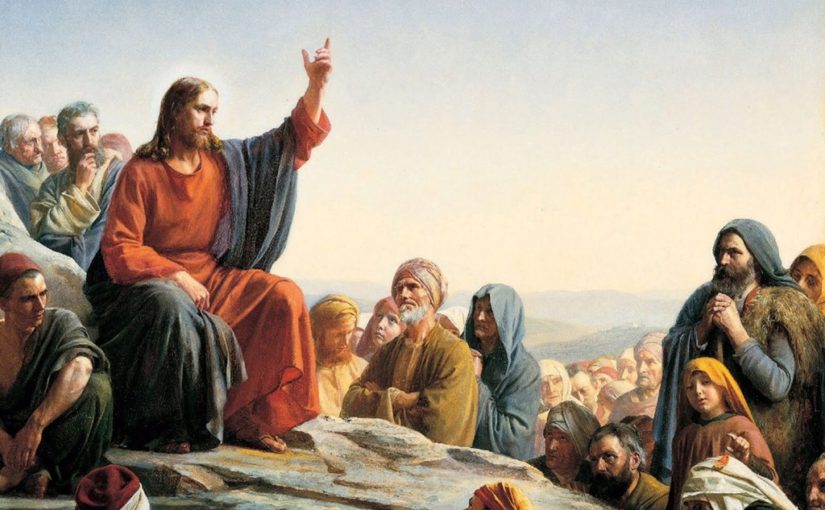
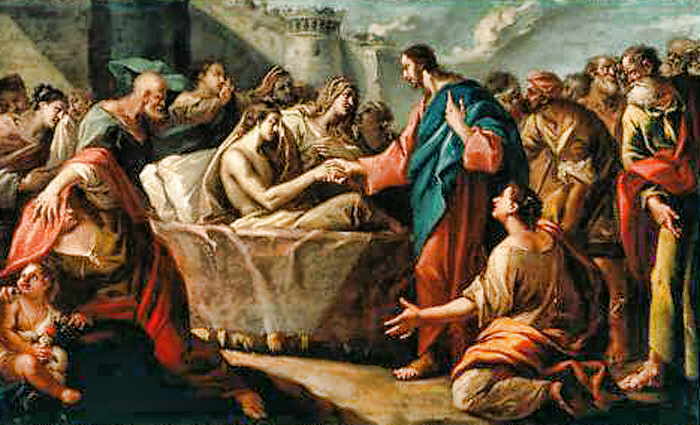


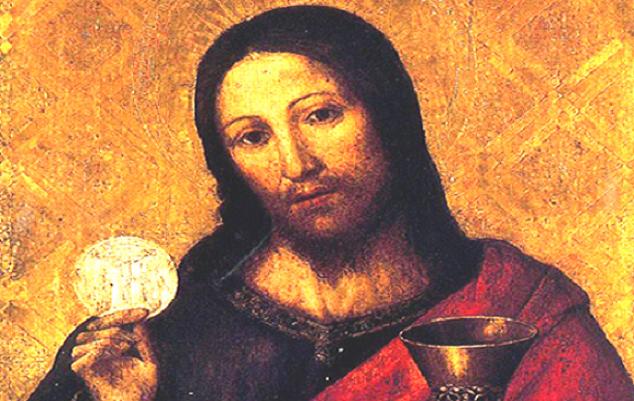


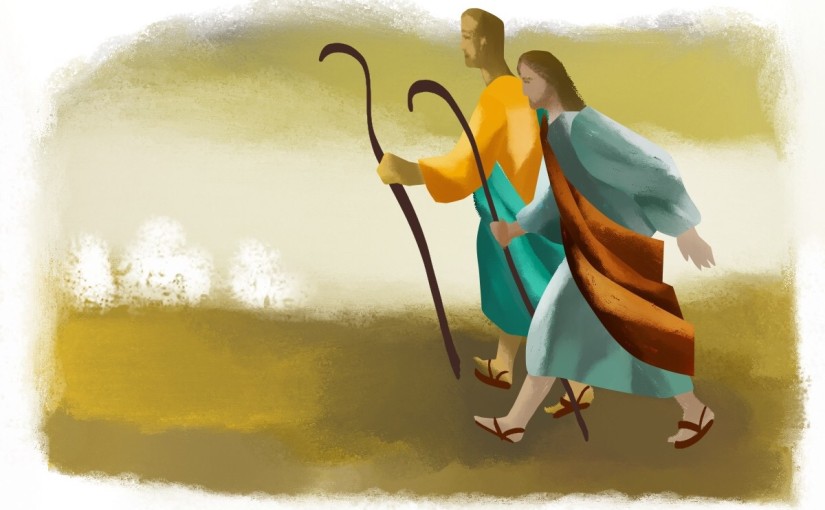
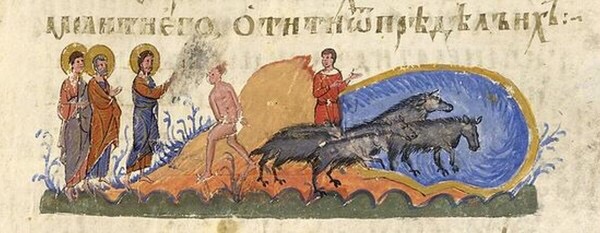

You must be logged in to post a comment.